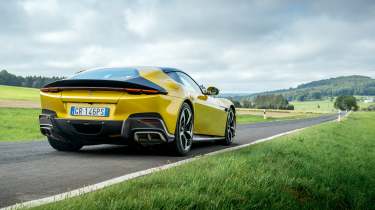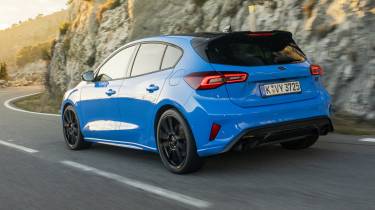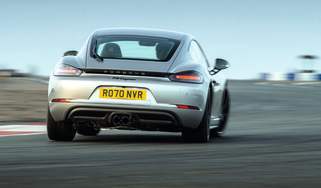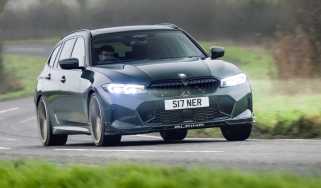UK government consults industry on 2030 petrol and diesel car ban
The government plans to reinstate the 2030 ban on pure ICE car sales, but is speaking with industry figures to ‘restore clarity’

The UK government has begun a consultation phase with the automotive industry and electric car charging industry, as it evaluates how best to implement its planned ban on sales of pure internal combustion-engined cars from 2030. The consultation process is set to continue into February 2025.
Returning to the original 2030 deadline – first implemented by former prime minister Boris Johnson in 2020 – was a component of the current Labour government’s pre-election manifesto, and it has thus far indicated it plans to proceed with that course.
Secretary of state for transport Heidi Alexander – who has been in the role since 29 November 2024 – has announced that the government is seeking viewpoints from the automotive and infrastructure industries to ‘restore clarity for vehicle manufacturers and the charging industry so that they have the confidence to invest in the UK in the long-term’.
As a result of the consultation, updates may be made to the percentage of a manufacturer’s sales required to be zero-emission vehicles (ZEVs) ahead of 2030 under the current ZEV mandate. For 2024, that is 22 per cent.
The consultation may also inform whether hybrid vehicles may be allowed to remain on sale post-2030, and if so, if that will include plug-in, non-plug-in, and/or range-extender powertrains.

Chief executive of the Society of Motor Manufacturers and Traders (SMMT) Mike Hawes has commented on the announced consultation: ‘The automotive industry welcomes [the] government’s review of both the end-of-sale date for cars powered solely by petrol or diesel, and possible changes to the flexibilities around the Zero Emission Vehicle Mandate.
‘These are both critical issues for an industry that is facing significant challenges globally as it tries to decarbonise ahead of natural market demand. Aside from the billions invested in new technologies and products, it has cost manufacturers in excess of £4 billion in discounting in the UK this year alone. This is unsustainable and, with the 2025 market looking under even greater pressure, it is imperative we get an urgent resolution, with a clear intent to adapt the regulation to support delivery, backed by bold incentives to stimulate demand. Such action will support not only the industry, but also deliver for the economy, consumer, government and the environment.’
A government spokesperson for the Department for Transport confirmed in September 2024 that: ‘We have always been committed to restoring the original 2030 phase-out date for the sale of new cars with pure internal combustion engines.
‘The original phase-out date included the provision for some hybrid vehicle sales between 2030 and 35. We know it is important to provide certainty and stability for drivers and will set out further details in due course.’

The consultation with automotive and charging industry figures announced in December 2024 is part of the process to firm up those details. The decision has brought the ban’s timeframe back into line with that set out in November 2020 by Johnson, which also allowed for hybrid vehicles to be sold until 2035. By contrast, European countries including France, Italy and Spain will allow the sale of both pure ICE models and hybrids until 2035. Rishi Sunak announced the UK’s similar delay to 2035 in September 2023.
The 2030 ban has been the subject of much controversy, and varying views from industry stakeholders and manufacturers themselves. Toyota was positive about the Sunak government’s 2035 deadline extension, saying it recognised that ‘low emission and affordable technologies can have a role to play in a pragmatic vehicle transition’. Toyota’s rollout of electric cars has been slower than others (its current EV range consists of the bZ4X SUV and variations of the Proace van/people carrier, although more are planned), and the firm has primarily focused on hybrid models in recent years.
Ford, meanwhile, felt that extending the deadline to 2035 brought uncertainty to the industry. The firm’s UK chair Lisa Brankin said: ‘Our business needs three things from the UK government: ambition, commitment, and consistency... A relaxation of 2030 undermines all three.’ Ford has shown strong commitment towards electric cars, investing $22bn to rebuild its Cologne factory to become an EV-only manufacturing facility and signing a technical agreement with Volkswagen to share EV platforms for models such as the new Capri and Explorer.
Brankin has also recently been critical of the lack of incentives for consumers to make the switch to electric vehicles: ‘The one thing that we really need is government-backed incentives to urgently boost the uptake of electric vehicles,’ she told the BBC in November 2024.







